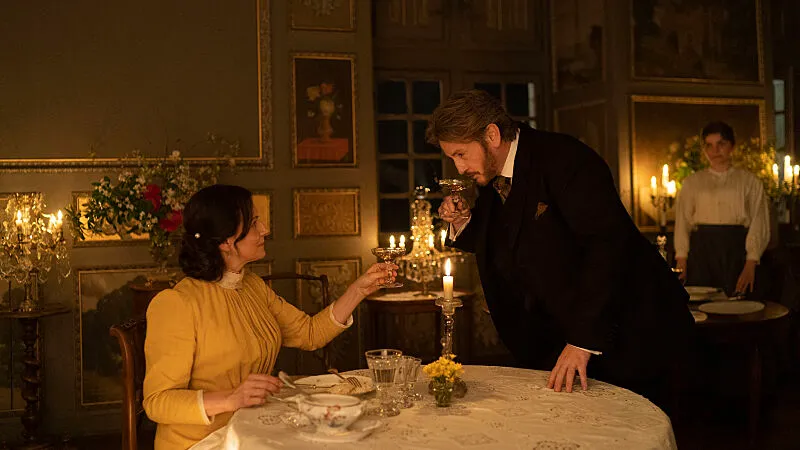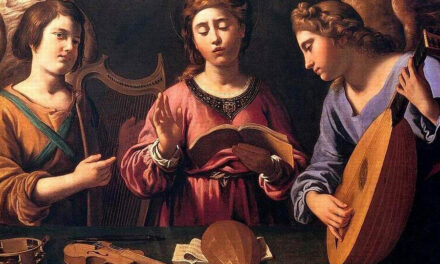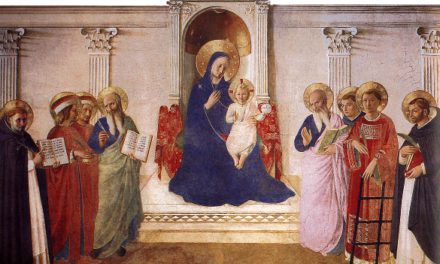Beyond frying eggs and bacon, I consider cooking a full-course meal with feelings approaching horror. I failed my Boy Scouts’ cooking merit badge six times, passing at last when the scoutmaster decided to pair me with a friend who had failed seven times. We passed, and that may have been the last time I managed a dinner of that scale (over a campfire, no less). Truth be told, I’d be far more likely to poison than please anyone eating a meal I prepared.
So, I shouldn’t be interested in movies about cooking and food, but like mathematics, another thing I’ve never really “gotten,” I find the subject fascinating. Judging from the paucity of feature films dealing with the culinary arts, directors and writers must not agree although the perennial success of cooking shows on TV tells another story. Still, the big screen has not been the primary medium for the kitchen. Babette’s Feast (1987) is a monumental exception. Other “eating” films, such as the La Grande Bouffe (1973) and My Dinner with Andre (1981) are as much about food, real or symbolic, as The Man Who Came to Dinner (1941).
The Taste of Things (La Passion de Dodin Bouffant), released in this country on February 9th, is, therefore, a rarity. It’s about food, all right. I didn’t time it, but it seemed that the first twenty (maybe thirty) minutes of the film were spent in the kitchen, interrupted by a few moments at a dinner table where a group of male guests and their host, Dodin Bouffant (Benoît Magimel), await and enjoy each of the numerous courses that reach the table.
The setting is France, 1889, at a château in the countryside. Dodin, as he is familiarly called through the movie, knows his food; at one point in the story an emissary from a visiting prince (Mhamed Arezki) calls him the “Napoleon of gastronomy.” He isn’t a mere gourmand. In the dinner’s various stages of preparation, he himself lends a hand, and he does a good deal more than peel potatoes. Evidently, he might have been a superlative professional cook. But he is a gentleman, an afficionado of great cuisine, so he has had his own cook, Eugénie (Juliette Binoche), a relationship that has lasted for over twenty years.
She is no ordinary woman. When the action begins, she strolls through Dodin’s, and in some respects her own, garden, choosing the perfect vegetables and herbs for the menu. In the kitchen, she remains a perpetually active figure: chopping poultry, slicing vegetables, simmering stock, searing cuts of meat, immersing fish in broth, even as Dodin, Violette (Galetéa Bellugi), and a precocious thirteen-year-old Pauline (Bonnie Chagneau Ravoire) all work feverishly. But as busy and, in the case of Dodin and Pauline, competent as they are, Eugénie stands out as (what else?) the presiding genius.
Dodin’s guests understand this well. An extraordinary cook, she is also an honored woman; they appear in the kitchen to ask her to share the meal, an offer she politely refuses. One suspects, they know she is more than the cook: Dodin and she have been lovers for years.
Is that why she serves as his cook? Hardly. Like a composer who plays the piano well, but not well enough to do his compositions full justice, Dodin gives his recipes to Eugénie confident that she will realize them in a way that lists of ingredients and measures cannot. As he remarks, “I read a recipe, and she worked magic on the stove.” The cliché cannot be avoided: the whole is greater than the sum of its parts, but even that phrase does not properly describe their relationship. They are two people who love the same things, and the goal of producing something wonderful binds them together. As I’ve indicated, he sees how impossible it would be for him to make the dishes she prepares. But it’s fair to wonder, could she dream up the recipes that he gives to her?
Their love, then, is symbiotic, more or less. The qualifier is necessary. To continue the earlier metaphor, like music that begs to be heard as it was meant to be, food must be tasted. And no matter how good a recipe is, it may be ruined in the kitchen. The material thing somehow transcends the idea, a reverse Neo-Platonism. Theologically, we know that when God has an idea, it is necessarily complete. But to communicate it to us, so often it must take physical form and sometimes flesh that may be seen, handled, smelled, and, in certain instances, tasted. Eugénie possesses the gift of transforming Dodin’s ideas into sensory, flavorful art.
Yet the love they have for one another stands incomplete, certainly in Dodin’s eyes. He has grown accustomed to visit her upstairs room at night, an arrangement that would satisfy many men—indeed most in 1889 or 2021. Not Dodin. He has asked Eugénie to marry him numerous times, only to receive a kind no. When she refuses his latest proposal, she observes that if they were married, her door would have to stay unlocked; as they are, she has a choice. Besides, they have been together for twenty years, more than many married couples.
Marriage, as its vows testify, renders two people one; however, in an imperfect world, the mystery of one sex to another persists, even within the married state. Is Eugènie’s refusal a recognition of that fact? Equally, does it suggest the gulf, very narrow in their case, that separates the imagining of a recipe and the cooking of it?
But there is an underlying problem that brings matters to a crisis. Eugènie not well, evidenced by her near fainting spell in the opening preparation of the meal for Dodin’s friends. Later, in conversation with him, she suddenly says, “Hold me,” a plea that’s more than romantic because she immediately swoons. Further episodes occur, and Dodin calls in his friend and fellow gourmand Rabaz (Emmanuel Salinger), a doctor, but he can make nothing of her condition. Will this increasingly desperate situation lead her to lower her defenses and marry Dodin?
As the film nears its end—and a great deal more has happened than I will discuss here—Dodin and Eugènie sit at the kitchen table together, quietly enjoying each other’s company. He recalls St. Augustine’s dictum, “Happiness is continuing to desire what we already have.” Does he have her? Her answer, in the form of a question, is, “Am I a wife, or am I a cook?” Dodin replies as one might expect, but the distinction by that point is practically irrelevant: to be one is to be the other in the way they have lived.
But see for yourselves. The Taste of Things stands out as a movie of supreme beauty and skill, thanks to Binoche and Magimel, director (Anh Hung Tran), and writers (Tran and Marcel Rouff); to miss it is to forego a sensory and intellectual pleasure of the highest order.














